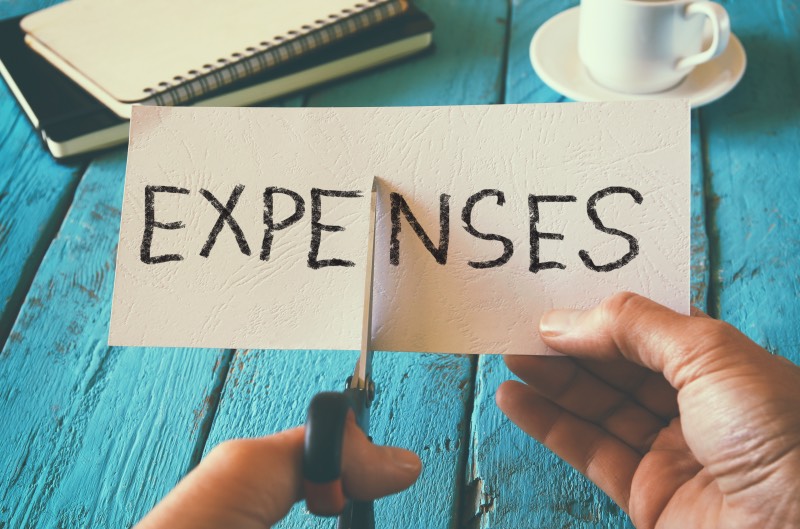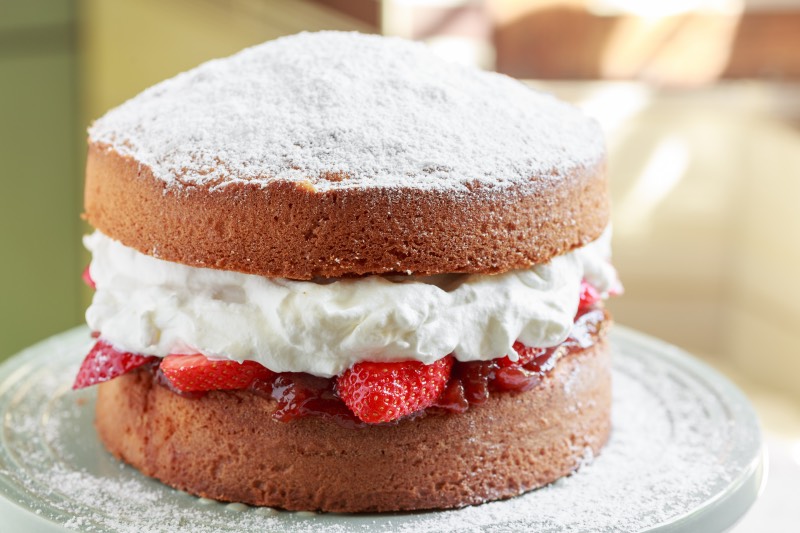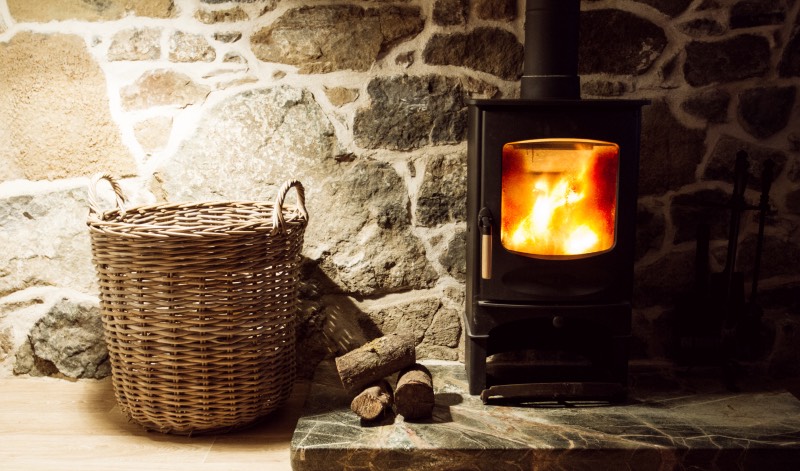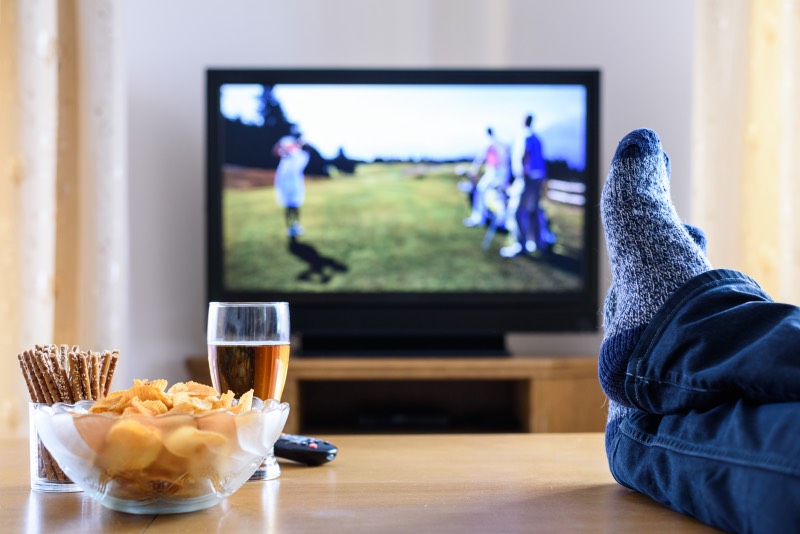 Whilst the steady increase in people choosing to holiday in the UK is good news for holiday cottage owners, on the flip side, it has resulted in more people investing in holiday lets. The influx of new properties has made the UK holiday rental market increasingly competitive. Holidaymakers are therefore able to shop around for reduced rates, whilst still expecting high standards and additional features such as wood burners and hot tubs. This, combined with increased running costs, can mean that profits can start to shrink if we are not careful.
Whilst the steady increase in people choosing to holiday in the UK is good news for holiday cottage owners, on the flip side, it has resulted in more people investing in holiday lets. The influx of new properties has made the UK holiday rental market increasingly competitive. Holidaymakers are therefore able to shop around for reduced rates, whilst still expecting high standards and additional features such as wood burners and hot tubs. This, combined with increased running costs, can mean that profits can start to shrink if we are not careful.
However, there are a variety of simple things we can do that can potentially save us hundreds of pounds a year without compromising on quality. Here are a few suggestions of how you can save some extra pennies.
Manage your own holiday home
Perhaps an obvious recommendation from Independent Cottages is to run and manage your own holiday home rather than use an agency. This is likely to save you a massive 15 – 30% of your profit. Many people new to the holiday letting market understandably believe that using an agent initially will ‘get things moving’. Whilst this might be the case for some, I have come across many owners who have been far more successful running their own holiday let compared to when an agent did it for them. No one has the same passion for getting bookings for your holiday cottage, than you. You will need time, energy and a good booking and management system, but perhaps most important of all is a bit of common sense and a ‘can do’ attitude. For more information on how to choose the right booking and management system read our article here.
Laundry
 Laundry and cleaning costs can really mount up over the course of a year. Whilst you should never skimp on these costs, there are a number of things you can do to keep the costs down. If you live locally then an obvious saving would be to do the laundry yourself. Laundry costs will vary across the country, but you can easily end up paying between £60 and £70 per changeover for a three-bedroom property. If you cannot wash your own bed linen and are using a laundry company, it may be cheaper to pay a local person or ask your cleaner to do it. Keeping all your linen and towels one colour can help cut down on the number of washes across the course of a year, not to mention detergent and extra electricity for tumble drying when the weather is not on your side.
Laundry and cleaning costs can really mount up over the course of a year. Whilst you should never skimp on these costs, there are a number of things you can do to keep the costs down. If you live locally then an obvious saving would be to do the laundry yourself. Laundry costs will vary across the country, but you can easily end up paying between £60 and £70 per changeover for a three-bedroom property. If you cannot wash your own bed linen and are using a laundry company, it may be cheaper to pay a local person or ask your cleaner to do it. Keeping all your linen and towels one colour can help cut down on the number of washes across the course of a year, not to mention detergent and extra electricity for tumble drying when the weather is not on your side.
Ask guests to be eco-friendly and provide signs for the beds to indicate if it has not been used. This not only saves time stripping unused beds but also cuts down on unnecessary washing of bedding and towels. Feel free to use this sign in your cottage.
When it is time to replace your sofa and chairs, consider choosing one with machine washable loose covers as it can provide a flexible option if accidents occur and save costly dry cleaning charges.
Avoid paying top price
You can pick up some great deals on items that regularly need replacing such as towels, bed linen, oven gloves, tea towels, glassware etc. Keep an eye out when the sales are on and stock up while discounts are being offered. It sounds obvious but how often do we have to rush out before the next guests arrive to replace something and end up paying over the odds?
Welcome gifts
 Whilst welcome gifts are generally very much appreciated they don’t always have to be expensive. Guests are likely to appreciate thoughtful little touches just as much as a luxury hamper. For example, make sure the fire is made up and ready to light with a jar of marshmallows to toast sitting by the side. Alternatively, everyone loves a homemade cake. Or some freshly laid eggs and home-baked bread for breakfast. Flowers dress the cottage nicely but can be expensive. You could buy an orchid plant which may cost twice the price but should last 2-3 months.
Whilst welcome gifts are generally very much appreciated they don’t always have to be expensive. Guests are likely to appreciate thoughtful little touches just as much as a luxury hamper. For example, make sure the fire is made up and ready to light with a jar of marshmallows to toast sitting by the side. Alternatively, everyone loves a homemade cake. Or some freshly laid eggs and home-baked bread for breakfast. Flowers dress the cottage nicely but can be expensive. You could buy an orchid plant which may cost twice the price but should last 2-3 months.
Reduce utility costs wherever possible
As well as shopping around for the cheapest utility provider, there are other ways to reduce your utility bills. Remember to revise your tariff after a special offer has ended. Also, be aware that dual fuel deals are not always the cheapest and you can often save money by switching to online billing and paying by direct debit.
Heating
If you have electric wall heaters in your cottage, consider fitting “run back” timers to avoid them being left on for hours on end. For owners with electric heating, when heaters need replacing, look at ones that can be controlled remotely. It will allow you to keep an eye on the heating and turn it down to a low setting when the cottage is unoccupied. If you have a low night tariff, make sure you tell guests about it and encourage them to use it. Not all guests will help out, but some might, especially if you highlight the eco-benefits, and every little helps!
Whilst installing a wood burning stove might not be cheap, it will not only attract more guests during the quieter winter months, but if guests can sit in front of a cosy fire they are less likely to turn the heating up to max and leave it there for the rest of their holiday. You don’t necessarily have to supply wood for the duration of the stay – a welcome basket is very often gratefully received with any further fuel (heating!) being paid for by the guest.
Lighting
Cosy evenings in require plenty of lighting. Consider using energy-efficient light bulbs or switch to LED. According to Which? you could save £232 a year by switching to LEDs.
Insulation
According to recent findings from the Energy Saving Trust, 25% of the heat in an uninsulated property could be lost through its roof, whilst 66% of heat could be lost through the walls. Although having your house insulated isn’t cheap, it is likely to pay for itself after a couple of years. Given that holiday makers have a tendency to turn the heating on full without worrying about having to pay for it themselves, ensuring your property is well insulted is certainly a wise investment.
Energy-efficient appliances
It is important to ensure all appliances such as washer/driers and dishwashers are energy efficient. A lot of guests pack lightly and will want to wash their clothes during their stay. Typical washing machines use double the amount of water and energy compared to energy-efficient ones. Whilst they might cost more initially, the upfront cost quickly balances out.
It is also worth considering fitting a water-saving showerhead. According to the Energy Saving Trust this will save a house with four people as much as £70 a year on heating the water, as well as £115 on water bills if you have a water meter.
It may also be worth considering if you really need a tumble dryer. Whilst they are useful, they do eat up electricity, particularly when guests decide to do all their washing before they go home to save their own electricity costs! You may want to review how necessary the facility is given your clientèle.
Phone, broadband and television
If you have different providers for your phone, broadband and satellite TV, then merging them can save significant costs. Not only can it make good financial savings but it can also make payments easier to manage. If your properties are co-located, consider whether a phone line is necessary for each property. There are many ways to extend and share a single broadband service across co-located properties and most people tend to have their own mobile phones. Before offering Wi-Fi to your guests, take a look at our guide outlining the risks and benefits of offering internet in your holiday home.
Co-located properties can also share TV licences. You will need to purchase a Hotel and Mobile Televisions Licence anyway if you have a TV at your holiday let. This is the same price as a regular TV licence, but it covers up to 15 different holiday houses if they are located on the same site. If you also live on-site it could cover your TV too. This can obviously provide a huge saving compared to buying individual licences for each property. You can find more information about music, DVD and TV licences for your holiday let here.
Take advantage of tax breaks
A lot of holiday cottage owners are not aware of the significant tax breaks that you are eligible for as a furnished holiday let (FHL). Assuming your property is available at least 210 days per year and you have bookings for more than 105 of those days, your property qualifies as a business asset rather than an investment. This means you can deduct capital allowance expenditure, such as furniture, decorating and household goods from your pre-tax profits. You can also make pension contributions from income generated from your holiday let.
As a business, your furnished holiday let will pay business rates instead of council tax. The Valuation Office will work out the rateable value of your property based on its type, location, size, quality and how much income you are likely to make from it. However, most people with only one holiday let are likely to be eligible for small business rate relief where you pay no business rates, or council tax, at all.
If you share the ownership of your holiday house with your husband or wife, it is likely you will be able to distribute the profits between you however you like. If you are on different tax bands it may make sense to allow more earnings to be paid to whoever pays less tax. We are by no means tax experts so our advice is to speak to an accountant to find out the best tax savings for you.
In summary
A profitable holiday let isn’t just about getting more bookings to increase the profits. In an increasingly competitive market it is important to consider all options where overheads can be reduced whilst still providing guests with the facilities they require. Being organised, making a few simple changes and understanding the tax rules surrounding furnished holiday lets can enable you to start saving money with minimal effort.
We all love cost saving ideas, so if you have any more please share them with us by leaving a reply below.




This is great advice thanks! Any suggestions on a good brand washing machine or washer/dryer to purchase for laundry washing? We’re hoping to have a rental that sleeps 8, but no idea where to start with that amount of bedding and towels to wash!
Hi Kate, for a larger property it is worth checking out the costs of local laundry companies. If too high and you want to do the washing yourself then you may wish to source a washing machine that takes a large load. Unfortunately I do not have any I can personally recommend but possibly one of our owners may be using one they can recommend.